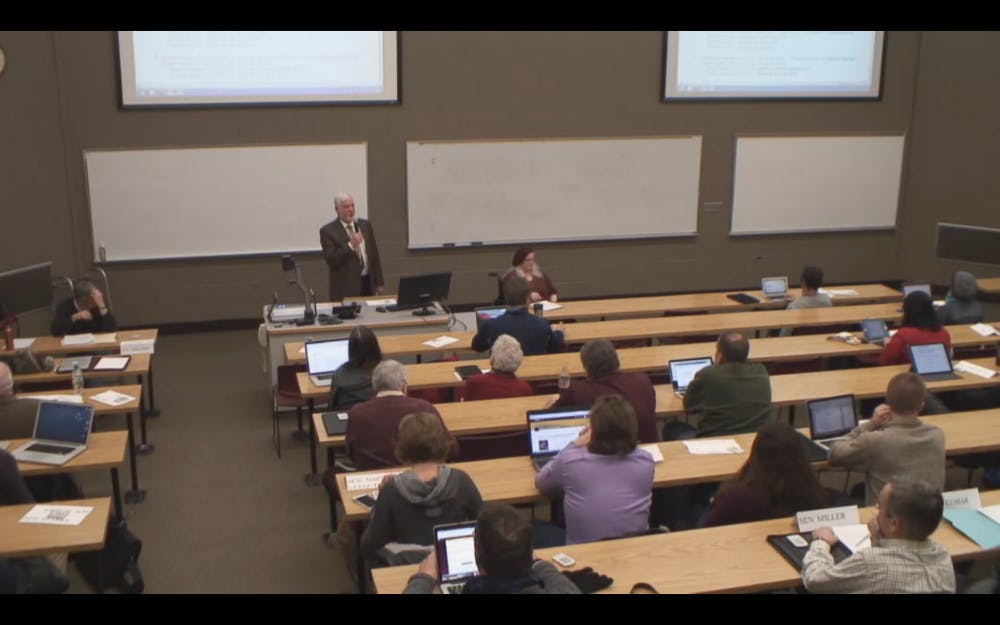Professors voice concerns about potential sale of broadcasting stations
Several professors voiced concerns during Tuesday's Academic Senate meeting about the Board of Trustees’ decision to apply to participate in a Federal Communication Commission auction.
The board voted to apply for eligibility in the auction in December. The FCC is seeking to buy bandwidth on the television spectrum across the country and resell it to wireless carriers in order to accommodate the increased use of mobile devices. Central Michigan University owns five television stations. The board must decide by March 29 if it will participate in the auction.
Senator Jim Hill asked Provost Michael Gealt what the consequences are for CMU if it chooses not to participate.
“If we had not entered the auction, then we would not be able to gain any dollars if the bandwidth was moved, if the bandwidth was taken from us,” Gealt said. “If you are not a participant, but they want your bandwidth, they can move you from a UHS station to a VHF station without even asking if you want to move. You would then have all the costs associated with that move.”
Hill hopes the board considers the value of public broadcasting before making a decision.
“One of the true gems of this university is our public broadcasting system,” Hill said. “It’s been a tremendous recruitment, informational aspect. It is one of the most important things this university has. I would hope that the Board of Trustees would not look at the dollar amount and think ‘Well if we sell this and make some money, we can use it to subsidize something else.’”
Gealt encouraged Hill to send his comments to the board via email, at trustees@cmich.edu.
Senator Michael Mamp said several professors approached him and asked that he bring up the sale. He asked if there would be any public discussion about the university's decision on whether to participate in the auction. The provost said he could not discuss the issue due to federal anti-collusion laws. Gealt said legal counsel would give a brief summary of the anti-collusion laws at a senior leadership meeting next week.
“We are not even allowed, as I understand it, to talk amongst ourselves except in a meeting that is designated to make a decision,” he said.
Senator Brad Swanson asked why CMU could not have a public discussion when Michigan State University held a public forum on the issue. Gealt said the cutoff day for public discussions was Jan 12. Swanson asked if they could have had a discussion before Jan. 12, which the provost said was correct.
MSU announced on Jan. 11 that it would not apply for eligibility in the auction, and would instead partner with Detroit Public Television to create more content for its public television station, WKAR.
The provost said he wished the university had more money to support programs like the CMU public broadcasting system.
“I just go back and forth because there are things that we cannot afford, and we’re not going to raise tuition to afford, that I think would really enhance the student experience.”
When asked if he valued CMU Public Television, Gealt said he did not have a TV or watch CMU public television, and that he did not know, saying it was not an academic question.




